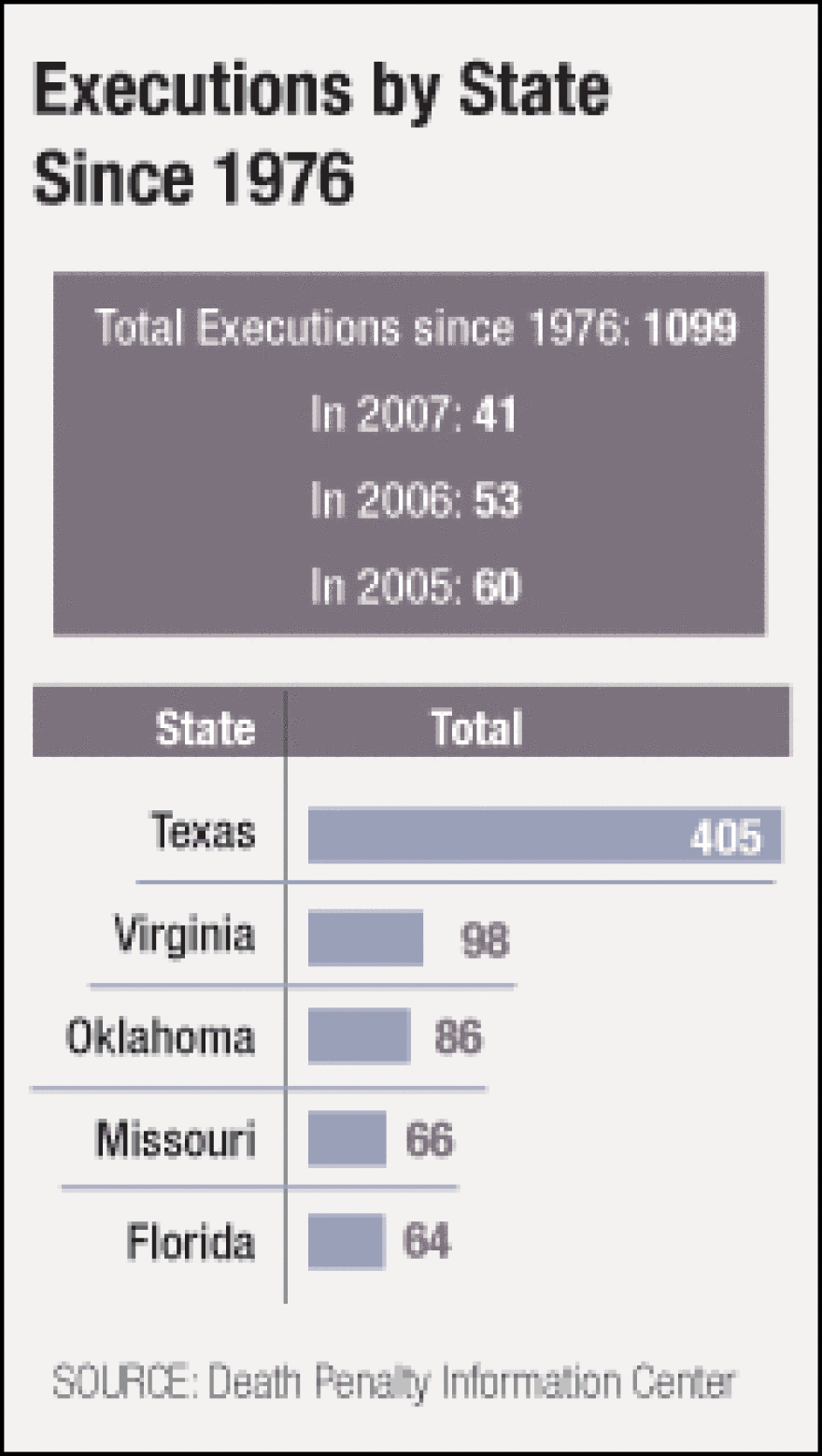
The Supreme Court on Wednesday upheld Kentucky's use of lethal injections for executions, clearing the way for a number of states to proceed with scheduled executions.
In a 7-2 decision, the justices rejected a constitutional challenge to the procedures in place in Kentucky, which uses three drugs to sedate, paralyze and kill inmates.
"We ... agree that petitioners have not carried their burden of showing that the risk of pain from maladministration of a concededly humane lethal injection protocol, and the failure to adopt untried and untested alternatives, constitute cruel and unusual punishment," Chief Justice John Roberts wrote.
Justices Ruth Bader Ginsburg and David Souter dissented.
Executions across the country have been on hold since September, when the court agreed to hear the Kentucky case. Texas, which leads the nation in executions, has also had an unofficial moratorium. It is not known when executions will resume.
The argument against the three-drug protocol is that if the initial anesthetic does not take hold, the other two drugs can cause excruciating pain. One of those drugs, a paralytic, would leave the prisoner unable to express his discomfort.
The case before the court came from Kentucky, where two death row inmates wanted the court to order a switch to a single drug, a barbiturate, that causes no pain and can be given in a large enough dose to cause death.
Kentucky executed its first and only prisoner by lethal injection in 1999. Recent executions in Florida and Ohio — which use the same three-drug protocol as Kentucky — have taken much longer than usual, with strong indications that the prisoners suffered severe pain in the process.
From NPR and wire reports
Copyright 2023 NPR. To see more, visit https://www.npr.org.




